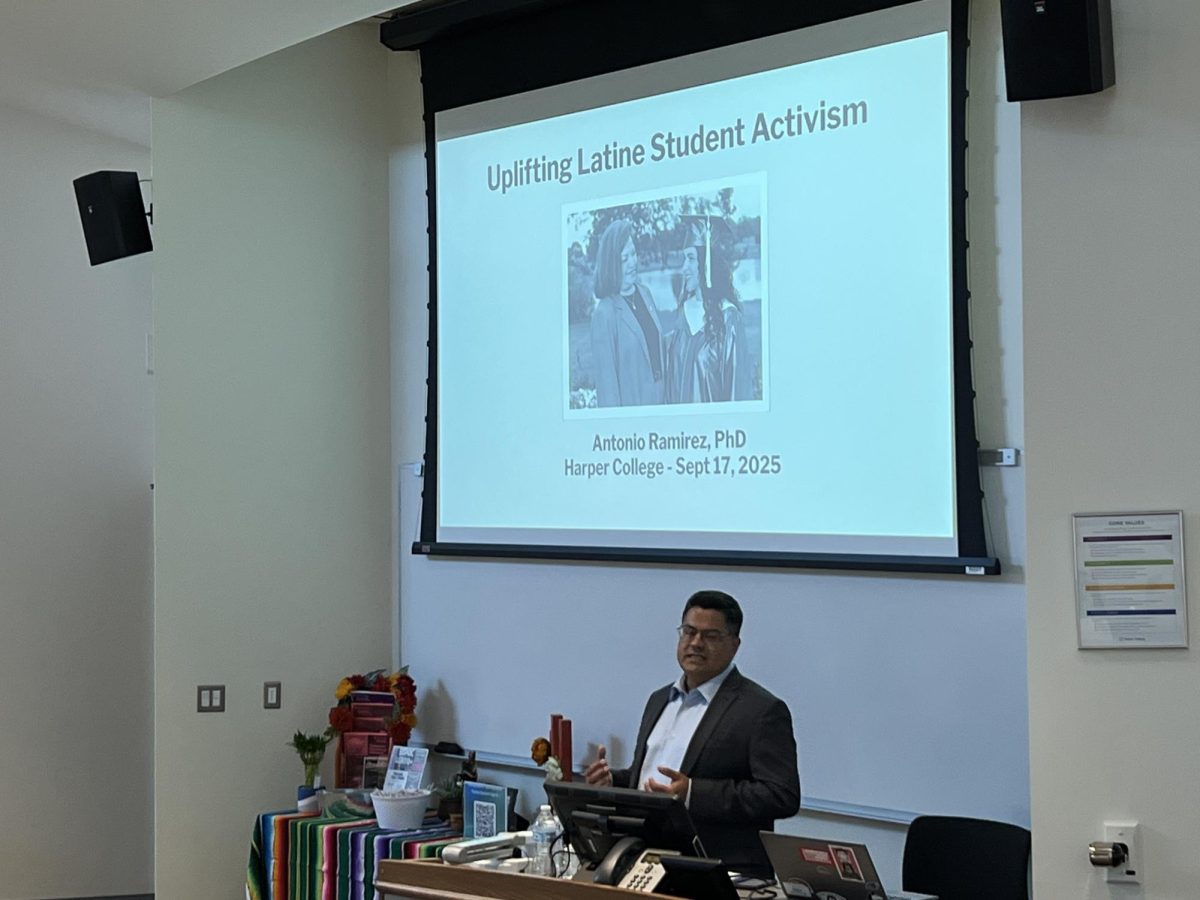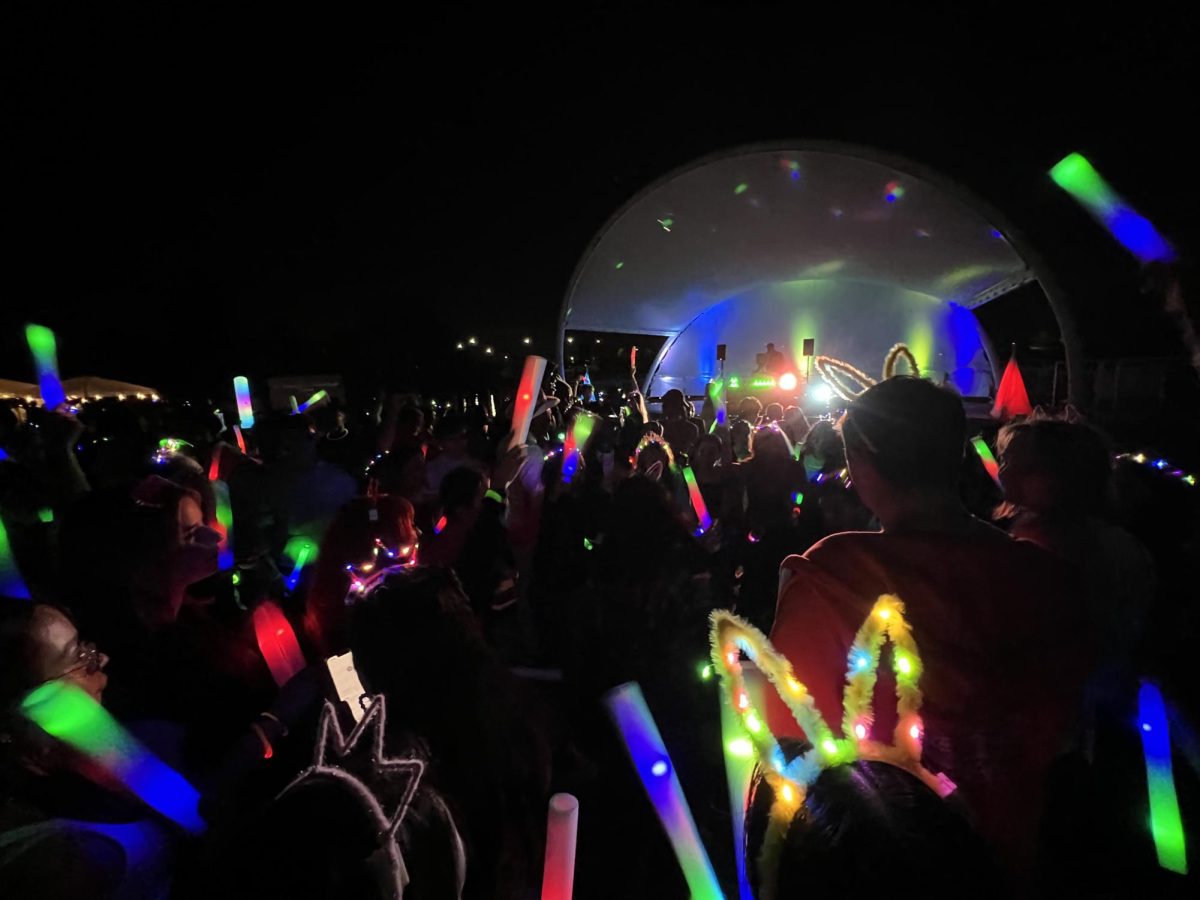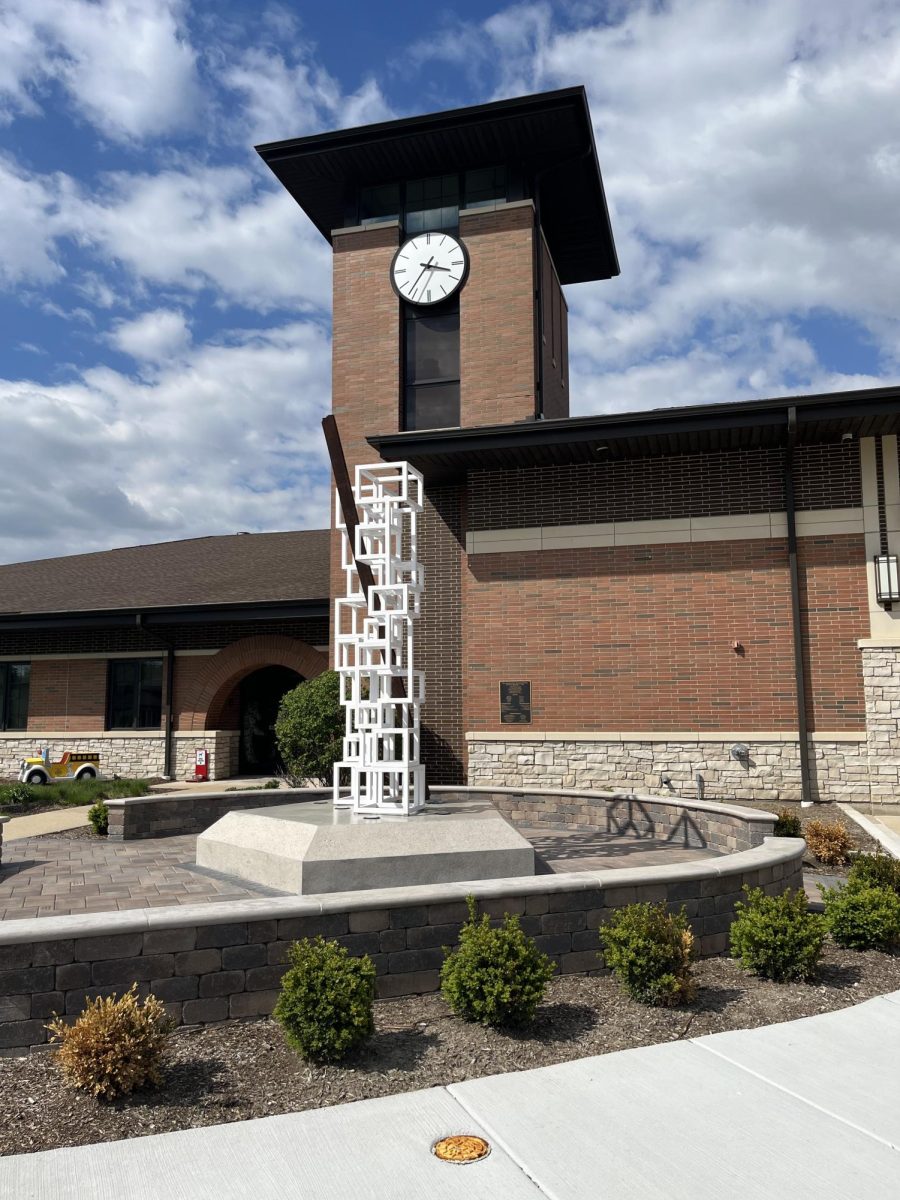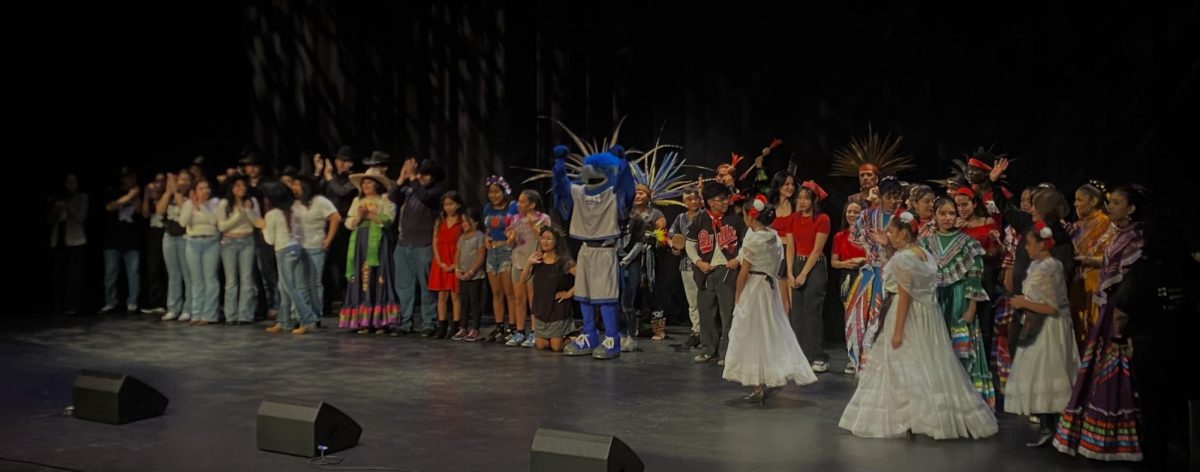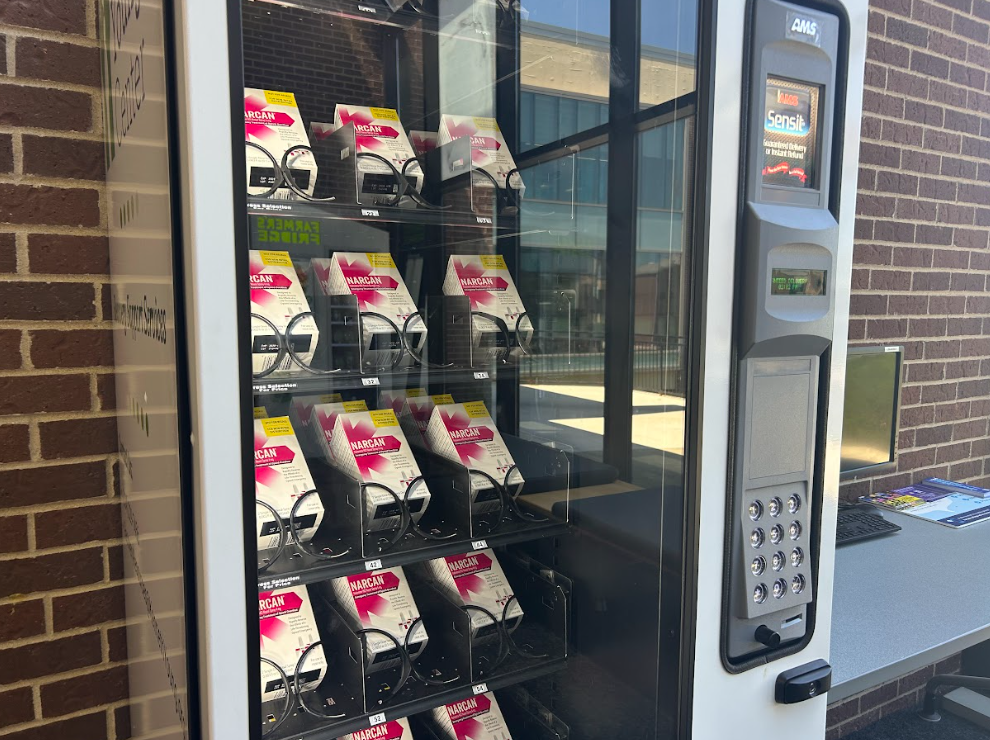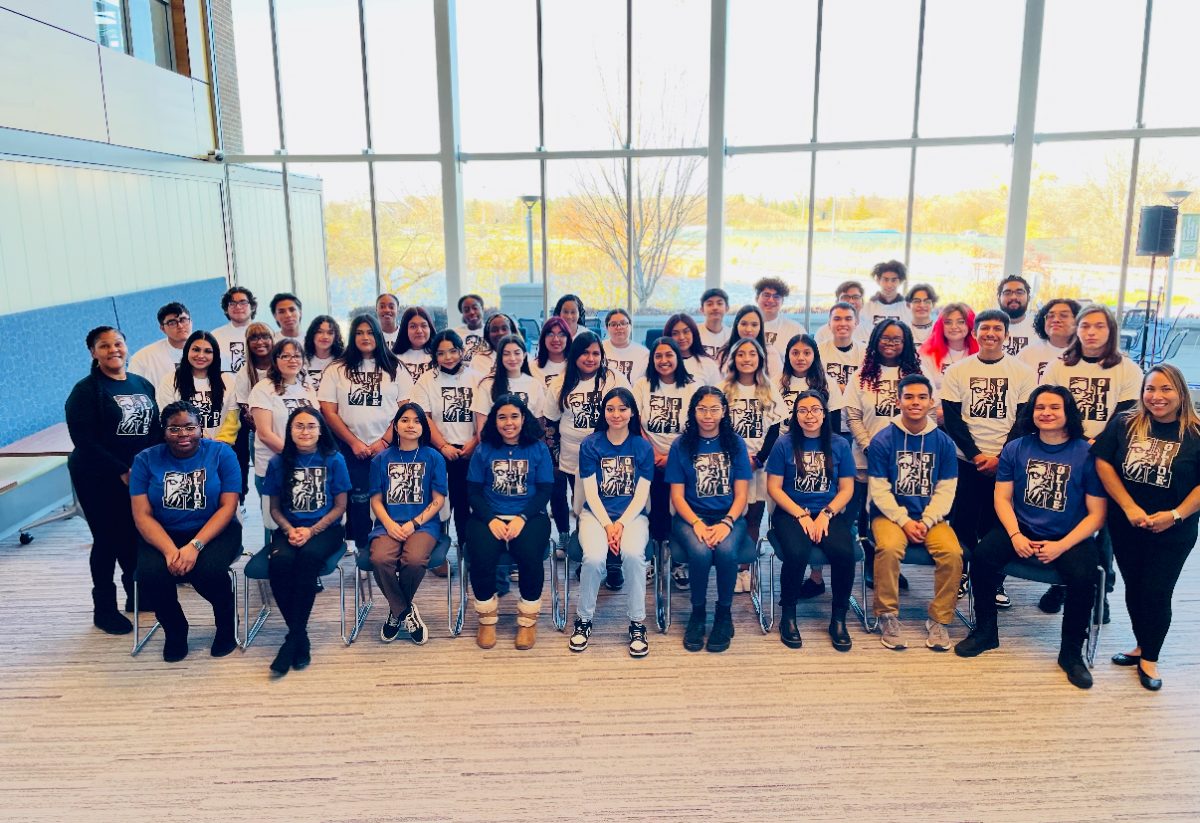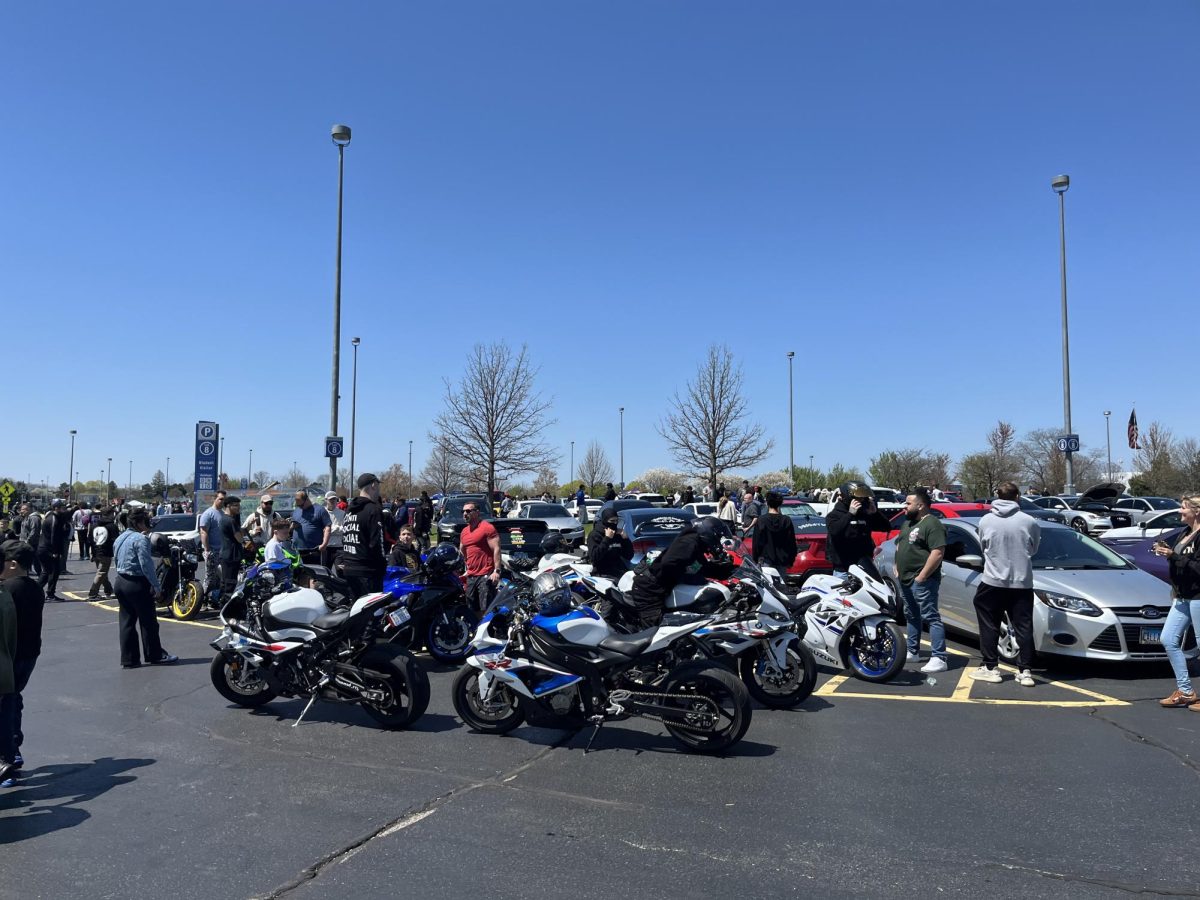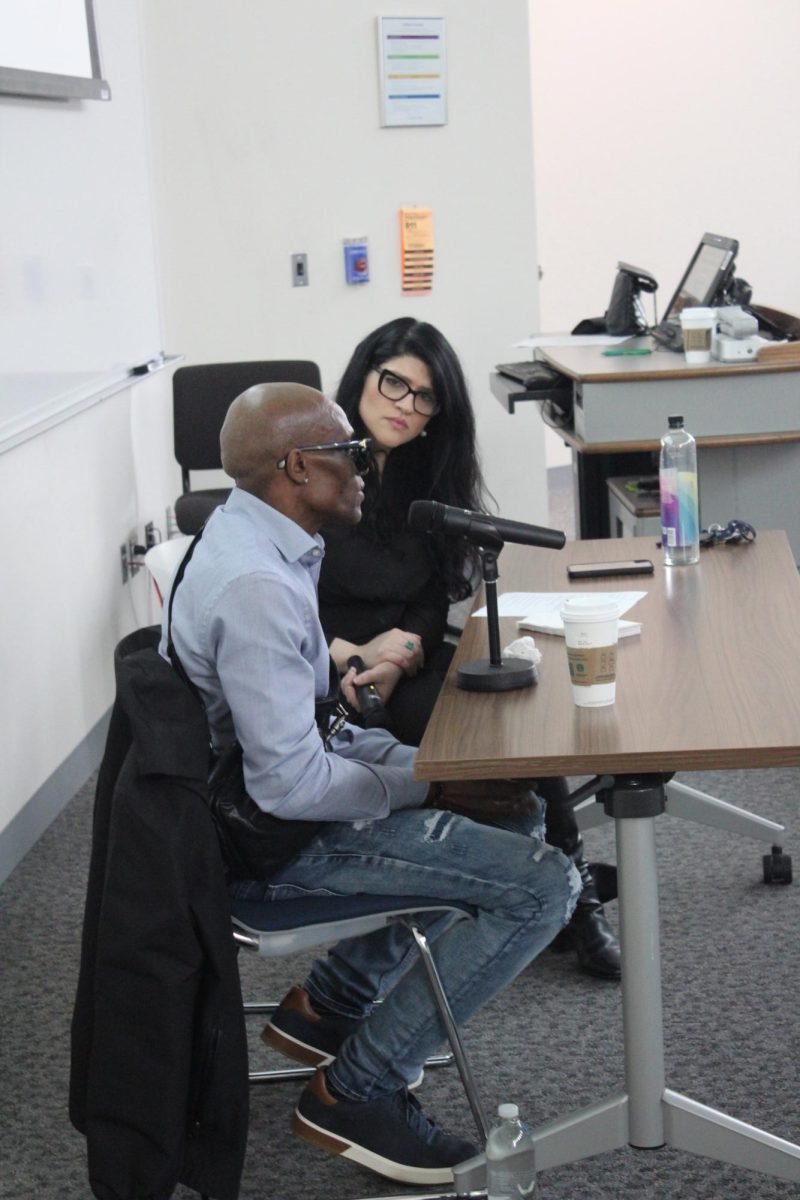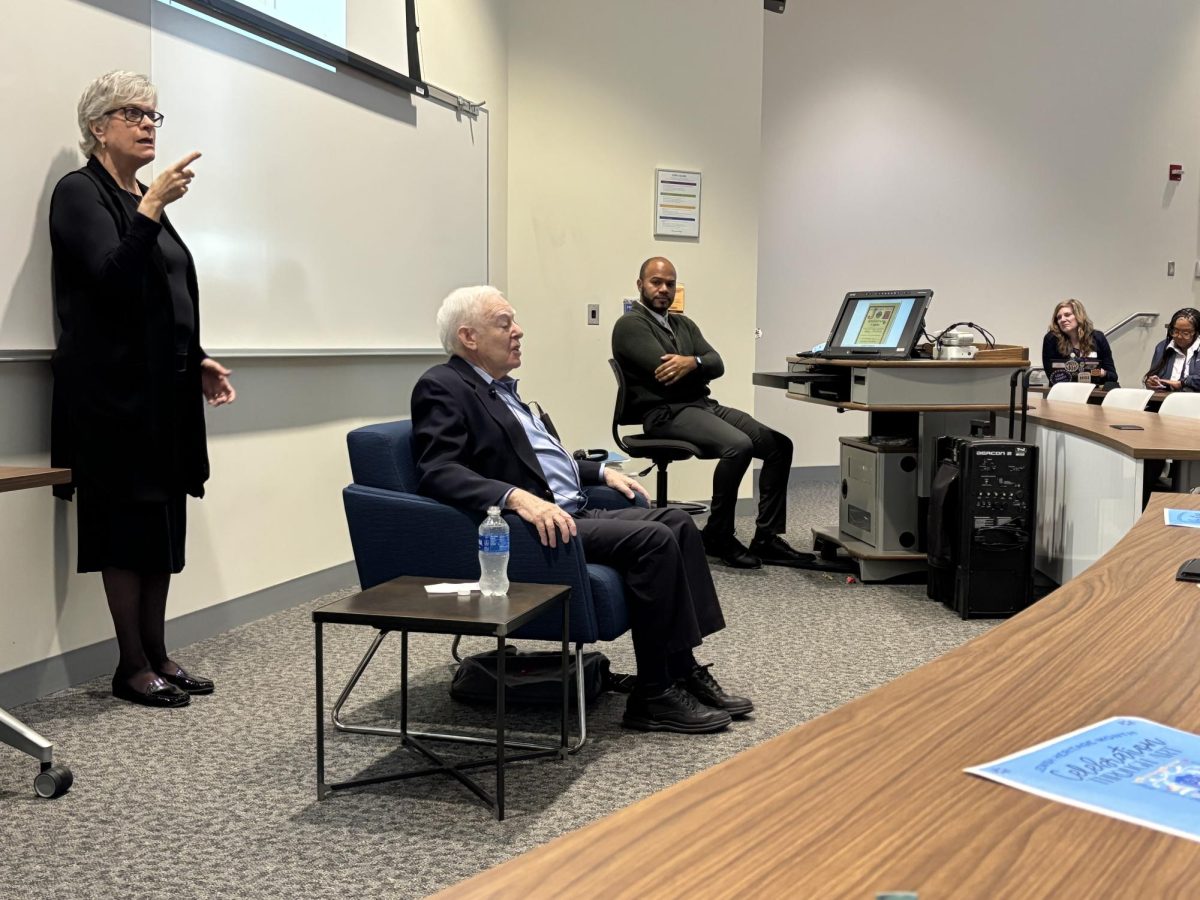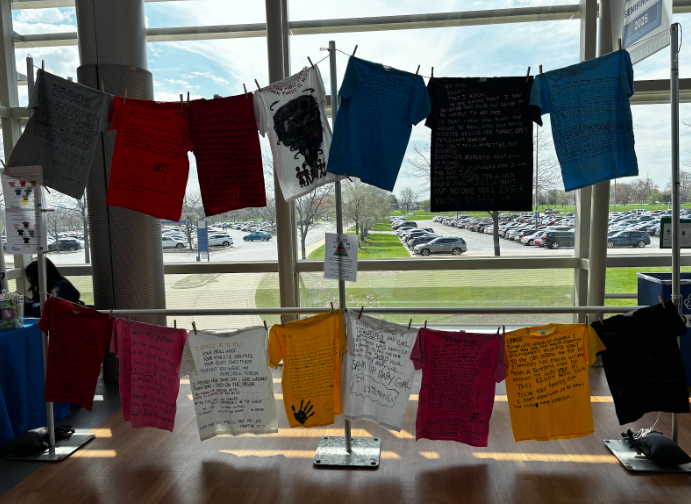When going to a Q&A event with a title like “Sex in the Dark,” it might be natural to expect an atmosphere where it feels like anything could happen. But immediately after the last few students grabbed their few complimentary glow sticks and found seating amidst the darkness of a packed Building E lecture hall, the night kicked off with its first major twist – and, despite the fact that it caught almost everyone in the audience off-guard, it was one that was quite literally forecast.
According to the National Weather Service, 11 tornadoes touched down statewide in Illinois on the night of Feb. 27, with three of those tornadoes either forming or passing through the towns just west of Palatine and the Harper College campus (Hoffman Estates, South Barrington and Inverness). With Harper a mere breeze away from being part of the collision course, Harper Wellness and Student Engagement faculty members had to usher attendees out almost as soon as they came in.
Students, staff and “Sex in the Dark” organizers alike huddled together in the hallways (or, for a select unfortunate few, the bathrooms) of Buildings D and E as the storm raged and inevitably passed outside. Though it thankfully ended up being nothing more than a half-hour diversion, “Sex in the Dark” speakers Marshall Miller and Stephanie Campos were impressed by the Harper faculty’s coordination in organizing such a quick emergency response – and the fact they returned to a lecture hall with about as many enthusiastic students as there were when they had first left it.
“The moment passed faster than I feared that it might, and I was glad that everybody could just get back in the room right away and make it happen,” Miller said.
The speakers picked up right where they left off. Seeing as “Sex in the Dark” was billed as a sexual education event where students could anonymously ask questions and have them answered by sex-ed experts, maintaining a comfortable and judgment-free atmosphere was paramount. They accomplished this by not only keeping the lights in the lecture hall off, but also by having students submit their questions via the presentation service Wooclap, which displays submitted questions from all users anonymously, as well as having a upvote feature that gives the presenters an easy way to gauge the audience’s interest on the fly.
As a founding member of the sex education program Sex Discussed Here along with his partner Dorian Solot, Miller believes that college events such as this one are a beneficial way to introduce important topics to students that often go unexplored — and are therefore misunderstood even into adulthood.
“There’s a wide range of normal. So many people wonder about how their body works or what their fantasies are,” Miller said. “And just because someone knows about something doesn’t mean that they need to be doing it – part of the value of a program like this is just learning about a wide range of things and recognizing that people are in all sorts of places. There is no agenda here other than just education and understanding, which is what I think college is all about.”
Campos also points out that sex is an important topic to discuss because it does not exist in a vacuum, and that the topics they often find themselves exploring aren’t at all limited to what goes on in the bedroom.
“It’s not just about sex ed,” Campos said. “We talk a lot about life, relationships and internal feelings in ways that are not your typical ‘sex ed.’”
Because of the fact that their “sexpertise” often requires them to branch out to give advice on broader topics, Miller and Campos both believe that the most important aspect of these “Sex in the Dark” seminars is how they can help students gain confidence in communicating about sex and everything related to it.
“It’s always good when [the questions are] just coming from a place of curiosity. We often get questions where they want the ‘panacea’ kind of answer – how can I do this, how can I do that, how do I engage in better sex with my partner?” Campos said. “But a lot of it is just communication, sometimes from trial and error or just trying things out. It’s not about not having expectations, but just coming from a place of, ‘Let’s have fun, be curious, and keep an open mind.’”



